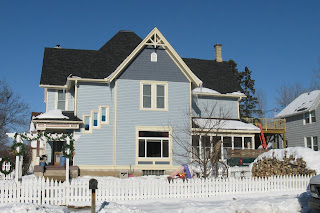This blog is part of our 35th Anniversary Celebration series, highlighting NeighborWorks member organizations which are celebrating milestone years marking either their membership in the network or their incorporation as an organization.
 |
Reneé Bibby,
marketing coordinator,
Primavera Foundation |
More than 28,000 individuals are homeless in Arizona, with 1 in 100 people homeless in Pima County and the Tucson Metropolitan Area. This is double the national average of 1 in 200.
Thirty years ago, Tucson, Arizona like the rest of the country, was experiencing a rapid rise in homelessness. To address this issue, Nancy Bissell and Gordon Packard organized a group of friends and neighbors and created the Primavera Foundation. Their initial goal was to provide for the emergency needs of those in our community who were homeless.
Currently celebrating its 30th year of providing services to the Tucson area, the Primavera Foundation has expanded with a variety of programs, to respond to the complex challenges and diverse needs of the community. Today, Primavera offers a full spectrum of programs that provide multiple affordable housing options, job training, employment opportunities, financial and homeownership education, and neighborhood revitalization. Primavera also provides specialized services for veterans while continuing to address social and economic justice issues. These programs and Primavera’s team of over 1,000 volunteers have helped to create a vibrant grassroots effort to address the underlying causes of poverty in the community.
 |
Rosa Borbon is raising her granddaughter, Mary Rose. Rosa
served on the Las Abuelitas grandparent council, providing
crucial design input into the plans of the Las Abuelitas project.
Photo credit: Primavera Foundation |
“Primavera’s job is to meet people wherever they are on their pathway out of poverty,” said Peggy Hutchison, Primavera’s chief executive officer.
A new
project under construction for Primavera is Las Abuelitas. This 12-unit community is for low-income grandparents raising their grandchildren and will open in August. It will also include a community center, basketball court, a playground, private gardens within the units, and a community garden.
“Primavera’s job is to meet people wherever they are on their pathway out of poverty,” said Peggy Hutchison, Primavera’s chief executive officer.
“We were approached by grandparents who had very unique concerns about raising their grandchildren and asked for a solution,” explains Hutchison. “Primavera decided that this was not only an opportunity to help 12 families, but a chance to empower other grandparents and revitalize the neighborhood.”
Additionally, Primavera is still working to address the needs of individuals. One example is a program participant named Bill McNamee, an ex-offender, who was homeless and in need of employment. After a stay at the Primavera men’s shelter, McNamee moved into Primavera’s rental housing program while participating in Primavera’s workforce development program, Primavera Works. He has now secured a full-time job and is looking forward to joining Primavera’s financial and homeownership education classes.
 |
Bill McNamee, currently employed as a host at Waffle House,
poses with Waffle House Owner, Gabby Llovet.
Photo credit: Primavera Foundation |
“Bill is a great example of how people can grow if given the right opportunity,” says Hutchison. But there are still an abundance of people to assist. Hutchison says a benefit of being a NeighborWorks America charter member is that “NeighborWorks is always willing to support progressive visions and programs.”
“The collaborative partnership that NeighborWorks brings to community development organizations throughout the network is immeasurable,” she adds.
Learn more about Primavera at
http://primavera.org




























